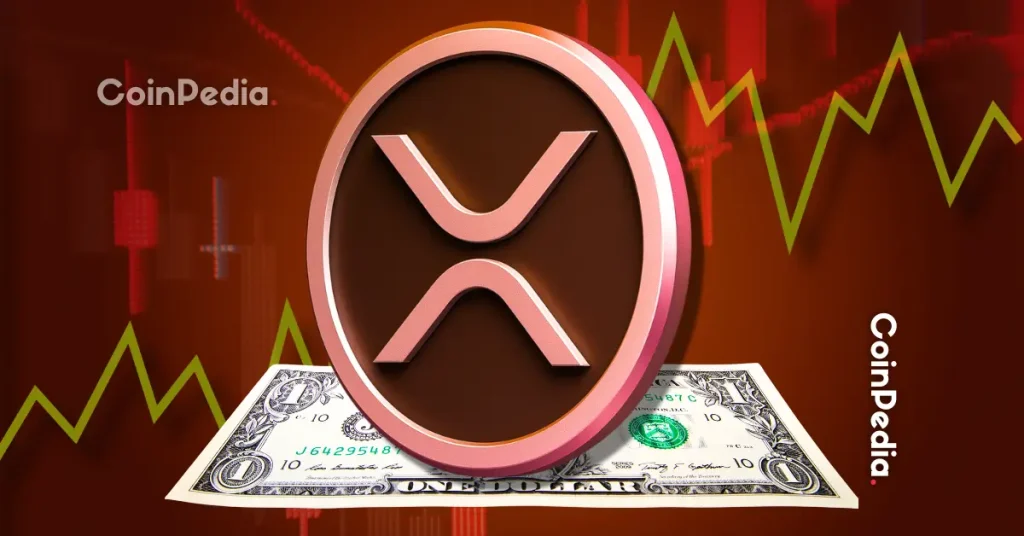XRP News Today : Ripple Advocate Bill Morgan Highlights Reliance’s $17M XRP Investment

The post XRP News Today : Ripple Advocate Bill Morgan Highlights Reliance’s $17M XRP Investment appeared first on Coinpedia Fintech News
Reliance Global Group (Nasdaq: RELI), a U.S.-listed insurance and financial services firm, recently revealed in an SEC filing that it has added XRP to its Digital Asset Treasury (DAT).
The purchase, completed on September 30, follows earlier treasury investments in Bitcoin, Ethereum, and Cardano, reflecting Reliance’s strategy to build a diversified crypto portfolio focused on assets with strong fundamentals and real-world utility.
And it’s caught the attention of the crypto community.
Bill Morgan Shines the Spotlight
The news gained further traction after Bill Morgan, a well-known Ripple advocate and legal expert, highlighted the filing on X.
Morgan also hinted that Reliance’s move could connect to something bigger – possibly tokenized insurance policies or payment integrations using the XRP Ledger (XRPL), much like what other companies in travel and healthcare have explored with Ripple’s technology.
A Measured Approach to Crypto
Reliance isn’t a typical crypto company. It’s an established insurance player with platforms like RELI Exchange and 5MinuteInsure.com, which already use AI and automation to modernize insurance services.
According to Ezra Beyman, the company’s Chairman and CEO, adding XRP fits Reliance’s plan to carefully grow its digital asset treasury.
“XRP offers speed, efficiency, and proven value in global payments,” he said, adding that the company is focused on innovation, secure custody, and regulatory compliance while using blockchain to create long-term value for shareholders.
Also Read: XRP News: Two Months After Lawsuit Triumph, Ripple Wins Best Digital Currency Award
Why XRP Fits the Bill
For a firm that handles financial services, XRP makes sense. It’s fast, low-cost, and energy-efficient, settling transactions in just a few seconds.
Ripple’s global banking partnerships and XRP’s ability to act as a bridge for cross-border payments make it a natural fit for companies exploring digital payment systems.
The Bigger Picture
Reliance’s move stands out because it shows how traditional companies are beginning to see crypto as more than speculation. They’re looking at it as infrastructure for the future and a way to make traditional businesses faster, cheaper, and more efficient.
And while Reliance’s XRP purchase may seem small on paper, it points to a bigger trend: established institutions are finally stepping into crypto for utility and XRP continues to be at the center of that shift.
You May Also Like

Franklin Templeton updates XRP ETF filing for imminent launch

Canada’s budget promises laws to regulate stablecoins, following US
Canada’s government unveiled a plan to regulate stablecoins, requiring fiat-backed issuers to maintain sufficient reserves and adopt robust risk management measures. Canada is set to introduce legislation regulating fiat-backed stablecoins under its federal budget for 2025, following the footsteps of the US, which passed landmark stablecoin laws in July.Stablecoin issuers will be required to hold sufficient reserves, establish redemption policies and implement various risk management frameworks, including measures to protect personal and financial data, according to the government’s 2025 budget released on Tuesday.The Bank of Canada would allocate $10 million over two years, starting in the 2026-2027 fiscal year, to ensure everything runs smoothly, followed by an estimated $5 million in annual costs that will be offset from stablecoin issuers regulated under the Retail Payment Activities Act.Read more